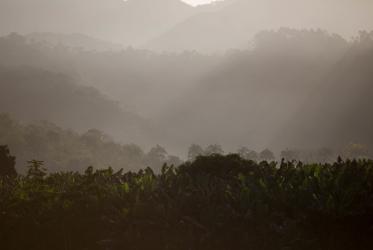Displaying 1 - 18 of 18
Voices from Colombia: “What if we have no land to till?”
15 February 2018
ÖRK ruft zum Schutz des Amazonas auf
22 November 2017
Protect the Amazon, urges WCC statement
22 November 2017
G20-Gipfel in Hamburg: Aufruf zu Friedensgebet
07 July 2017
G20 summit: call to pray for peace in Hamburg
07 July 2017





